The radical democrats in the desert
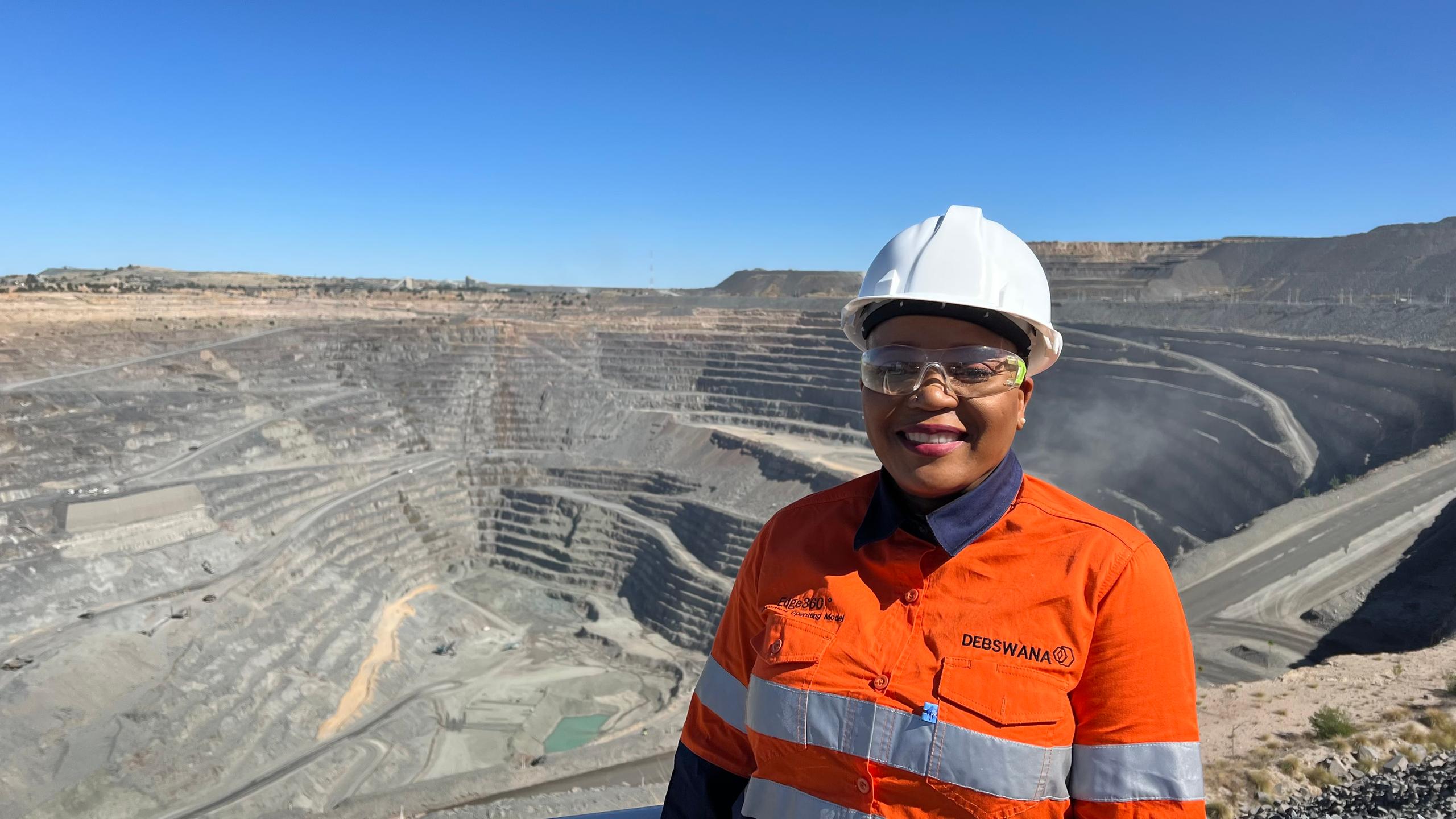
How Botswana built a direct democracy based on the mining of rough diamonds – and sparked Swiss interest in the process.
“When I drive up from the pit fully loaded, I’m moving at 9km/h. On the way down, I’m at 40km/h,” says Mosah Kgautle, looking up at the four-metre-high driver’s seat of her truck.
We are standing on the edge of a huge abyss, with a diameter of almost two kilometres and a depth of some 600 metres.
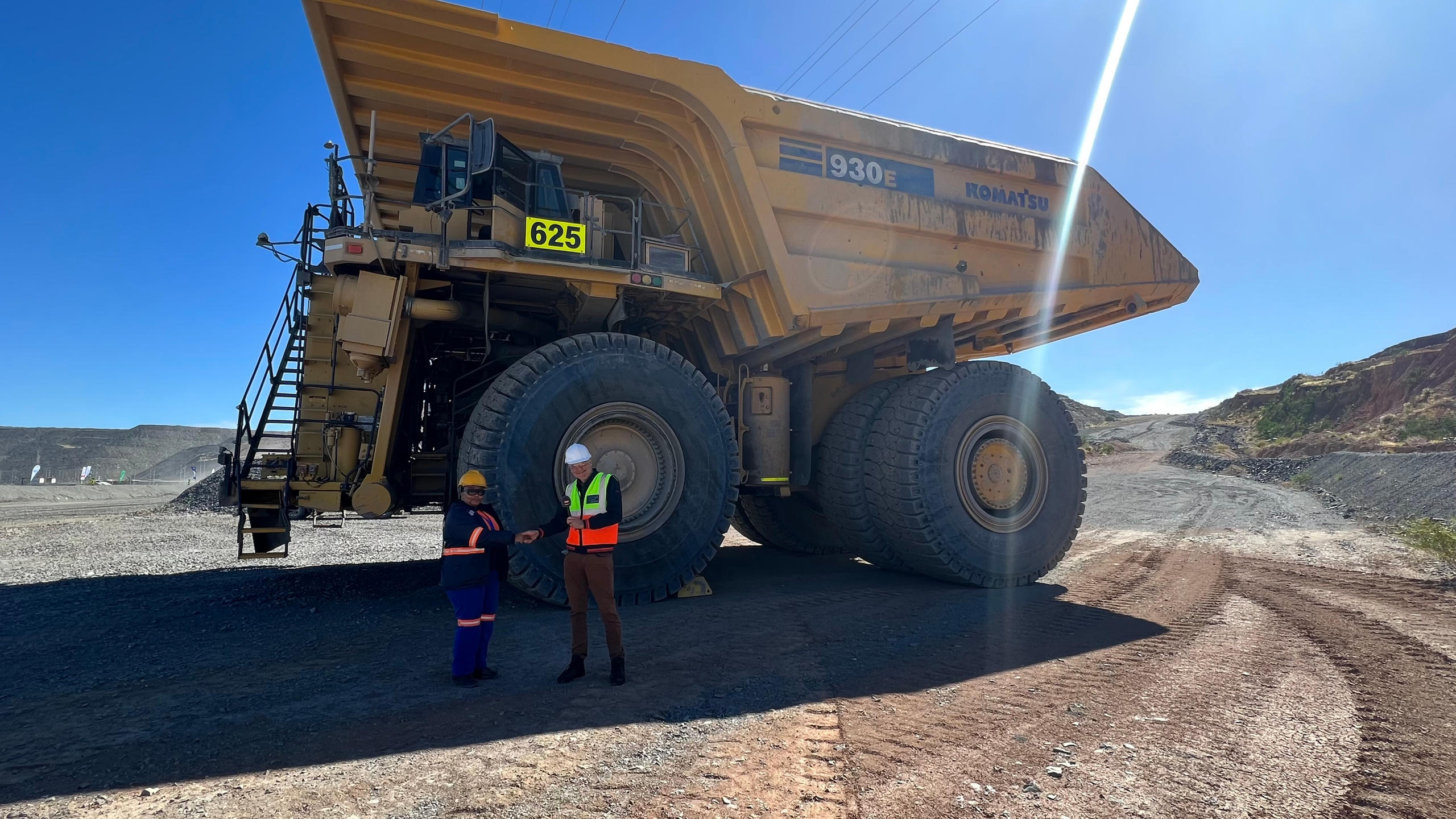
For almost a decade, 38-year-old Kgautle has been driving this Japanese hybrid vehicle, which weighs in at some 300 tonnes, in and out of the vast diamond mine. At the same time, she has – to some extent – been helping to steer the fate of her country: Botswana in Southern Africa.
Half of state income from diamonds
Every day, as Kgautle and her colleagues go about their work, the pit in Jwaneng grows wider and deeper – and Botswana grows more prosperous and confident.
We are a good 200 kilometres from the capital Gaborone, on the southern edge of the Kalahari Desert.
“With my job, I’m not just working for my employer, my family or myself, but for the whole country,” Kgautle says.
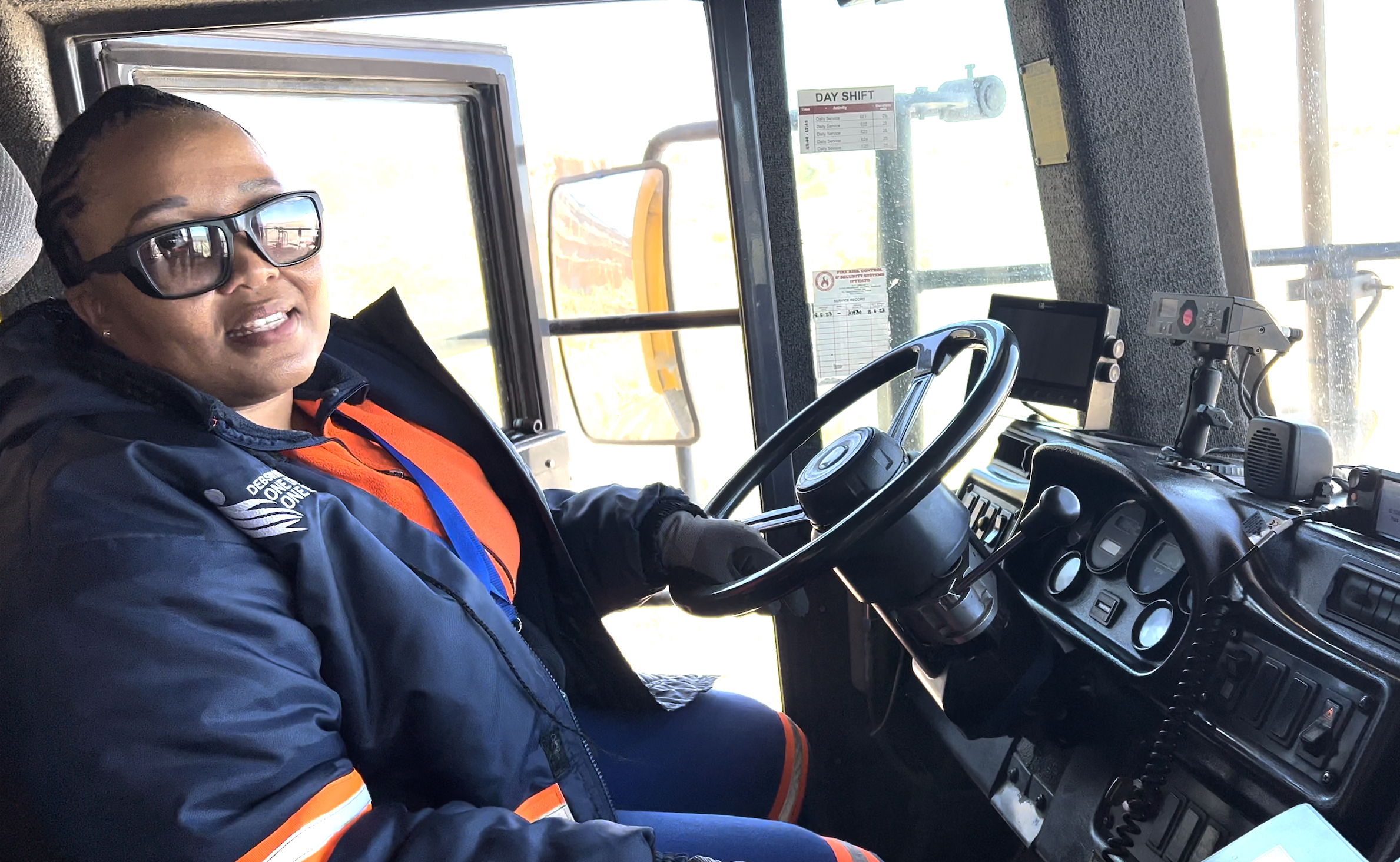
The Jwaneng diamond mine is one of the largest in the world and is operated by a company called Debswana – a joint venture between the government of Botswana and the South African mining company De Beers.
Profits from the lucrative diamond business now account for about half of the Botswanan government’s revenue. This stands in contrast to the diamond business in other parts of Southern Africa, where the precious stones have earned the inglorious name of blood diamonds – due to the notoriously inhumane working conditions for miners, as well as the corruption and environmental destruction involved.
While former European colonies in Southern Africa often struggle to manage their raw materials, Botswana’s success story continues. This summer, the government in Gaborone managed to set its cooperation with the South African mining giant De Beers on a new footing: in future, the country will receive 50% of the profits from the diamond trade, instead of 25% previously.
A diamond refining academy is to be built in Gaborone, which will ensure that the origin of the precious stones can be traced in the future. In addition, Debswana – which as well as Jwaneng operates three other, smaller mines – has pledged to invest billions in a “future fund”. Like the Norwegian oil fund, for example, this is aimed at benefitting the entire population of Botswana. “The money will be used to invest in industries such as agriculture, tourism and technology,” says the company’s chief financial officer, Naiko Carol Ralebala. “The diamonds belong to all of us.”
“When our state was founded, it was the poorest in the whole of Africa,” says Kebapetse Lotshwao, director of the politics institute at the University of Botswana. “In 1966, there were just seven kilometres of paved roads. But we were doubly lucky: the first diamonds were only discovered after independence, and our first president, Seretse Khama, was more interested in building a university than an army.”
Free education
To this day, tuition fees for Botswanan students are fully state-funded, even if they study abroad.
When the state was founded, neither the major colonial nations nor regional powers like South Africa were interested in the sparsely populated, landlocked country. Just a few hundred people lived in the area of today’s capital Gaborone, in the immediate vicinity of the South Africa-Rhodesia railway, which opened in 1896.
Africa’s oldest democracy
Today, after almost six decades of continuous double-digit and solidly managed economic growth, Africa’s oldest democracy is one of the wealthiest states on the continent. The centre of Gaborone, where almost 300,000 people now live, is dominated by glass skyscrapers and large shopping centres. And in the parliamentary district, it becomes clear how Botswana has managed over the years to avoid the turmoil and tragedy which has marked other countries in the region.
The 65 seats of the National Assembly are elected every five years by a direct popular vote. Since the first such election in 1965, the conservative Botswana Democratic Party has won a majority and formed the government every time.
Next to the National Assembly there is a smaller, richly decorated complex: Ntlo ya Dikgosi, the “House of Chiefs”. “We represent not only the different tribes and regions of the country, but also the numerous direct democratic people’s assemblies, the Kgotlas,” says Kgosi Puso Gaborone. He has presided over the small chamber since 2009, making him the “chief of chiefs” in the country.
Direct democracy at the local level
And indeed, Kgosi (“King”) Puso Gaborone meets SWI swissinfo.ch in one such assembly square (“Kgotla”) in Tlokweng, a district of Gaborone, rather than in his office in the parliamentary district.
“The vast majority of local decisions in Botswana are made by popular assemblies. Here, everyone can have their say and we always look for consensus,” Gaborone says. “That takes time and patience, but pays off in the long run in the form of legitimate decisions.”
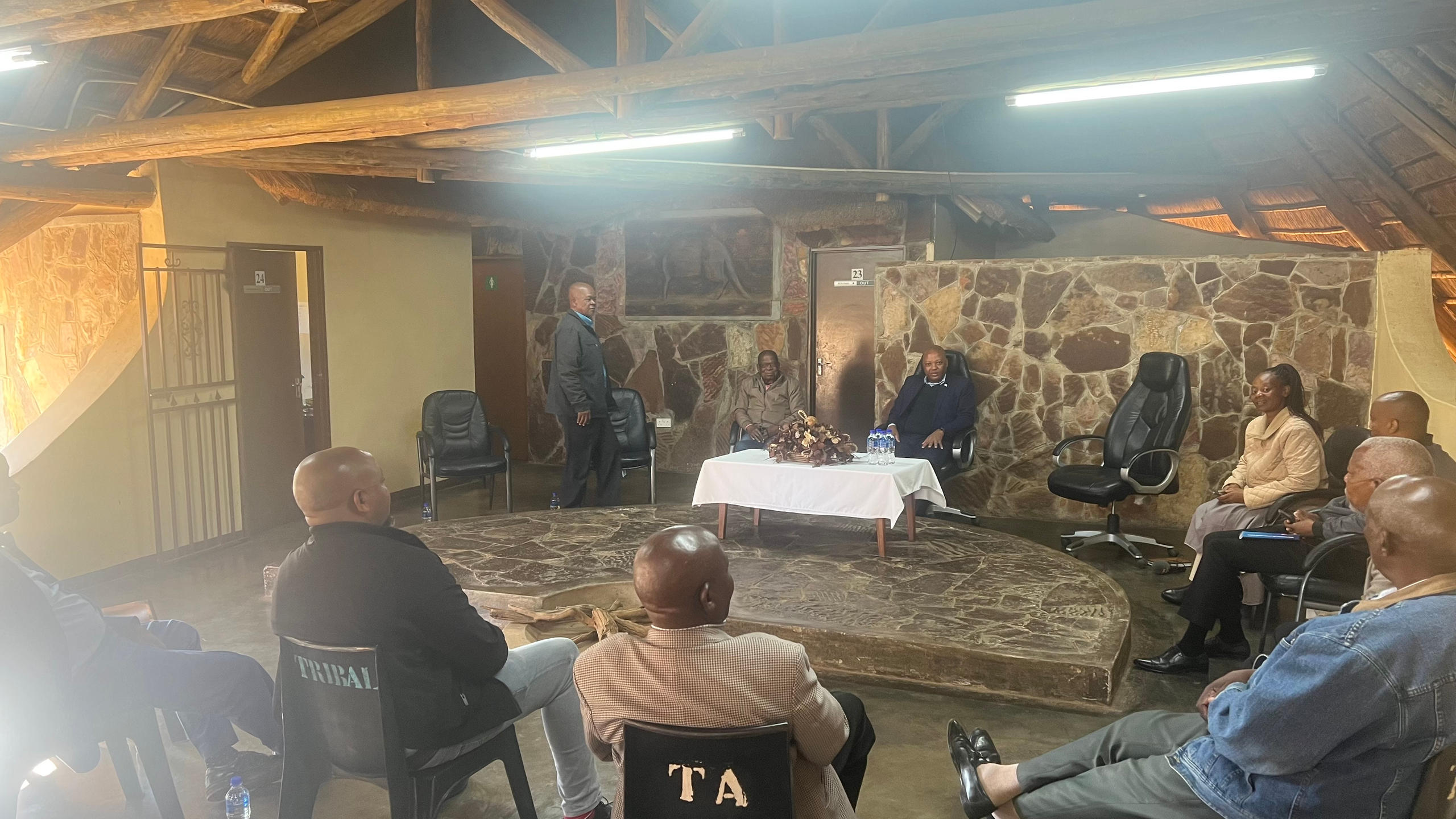
He proudly recounts how Swiss President Alain Berset visited his humble Kgotla this spring. Later, during a reciprocal state visit in April-May, Botswana’s head of state Mokgweetsi Masisi watched the open-air people’s assembly in canton Appenzell Inner Rhodes in eastern Switzerland. “We are so similar,” Gaborone says.
So far, there has been no talk of comprehensive and close relations between the two landlocked countries. Just 13 Botswanan citizens live in Switzerland; the number of Swiss living in Botswana is 53. Economic ties between the two model democracies with extensive civil rights are also marginal; some Swiss companies based in neighbouring South Africa are currently considering opening branches in Botswana.
Nevertheless, the two countries made diplomatic headlines this year with state visits: first, Swiss President Alain Berset toured the Southern African country in early February. Two months later, Botswana’s President Mokgweetsi Masisi made a reciprocal visit of several days to Switzerland, accompanied by several ministers and top officials. Now, at least in Botswana, there are great expectations for the further development of relations “among like-minded people”.
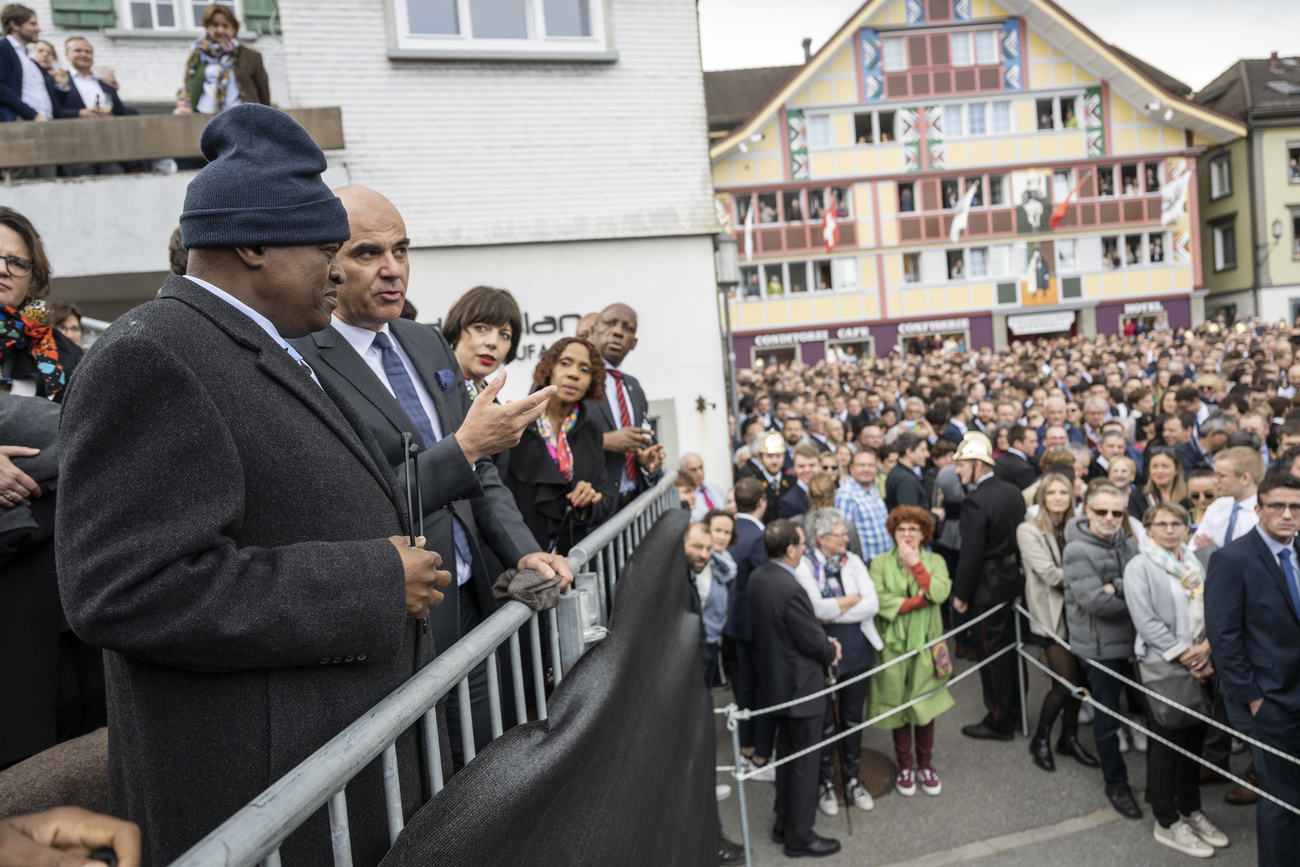
Unlike many other states in the region – often plagued by bigger problems – Botswana is not dependent on traditional development aid.
In some fields, such as the digitalisation of administration and politics or the development of vaccines, the country is even ahead of Switzerland.
One historical similarity with Switzerland is that Botswana, as a neutral state, has traditionally stayed out of – often armed – conflicts in Southern Africa. At the same time, the country has been a haven for dissident voices. “In the last decades of the apartheid regime in South Africa, many bright and innovative minds came to the country,” says Tefo Paya, director of the Maitisong National Theatre in the west of Gaborone. “From the beginning, the basic idea of our state was the peaceful coexistence of very different people, ethnic groups and cultures.” Like Kgosi Gabarone at the people’s assembly, Paya says he felt “almost at home” in Switzerland, where he recently spent a year at various locations at the invitation of the Pro Helvetia cultural foundation.
No embassy
Yet the differences between the two landlocked countries are so big that traditional bilateral diplomacy, as cultivated between neighbouring states in Europe for example, fall short.
As such, there is neither a Swiss embassy nor a consulate in Botswana (the representation in Pretoria, South Africa, covers the country). Botswana is meanwhile represented in Switzerland by its embassy in Geneva.
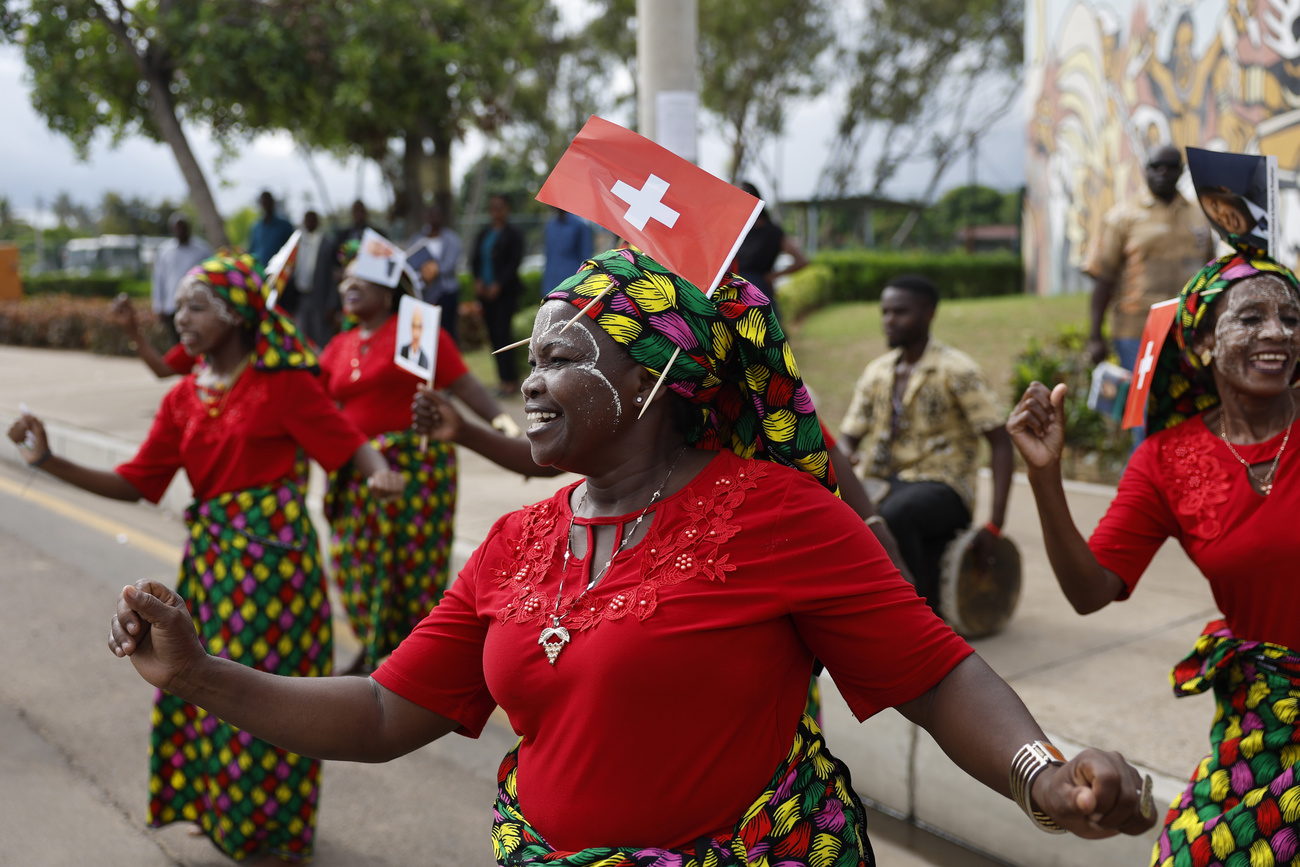
More
Botswana: Africa’s longest uninterrupted democracy goes global
Research by SWI swissinfo.ch revealed a certain lack of orientation in diplomatic circles on both sides. After the recent high-profile state visits, it’s unclear what the next steps should be. But the “active neutrality” policy of the two countries and the political will to promote democracy outside their own borders could open doors for deeper cooperation.
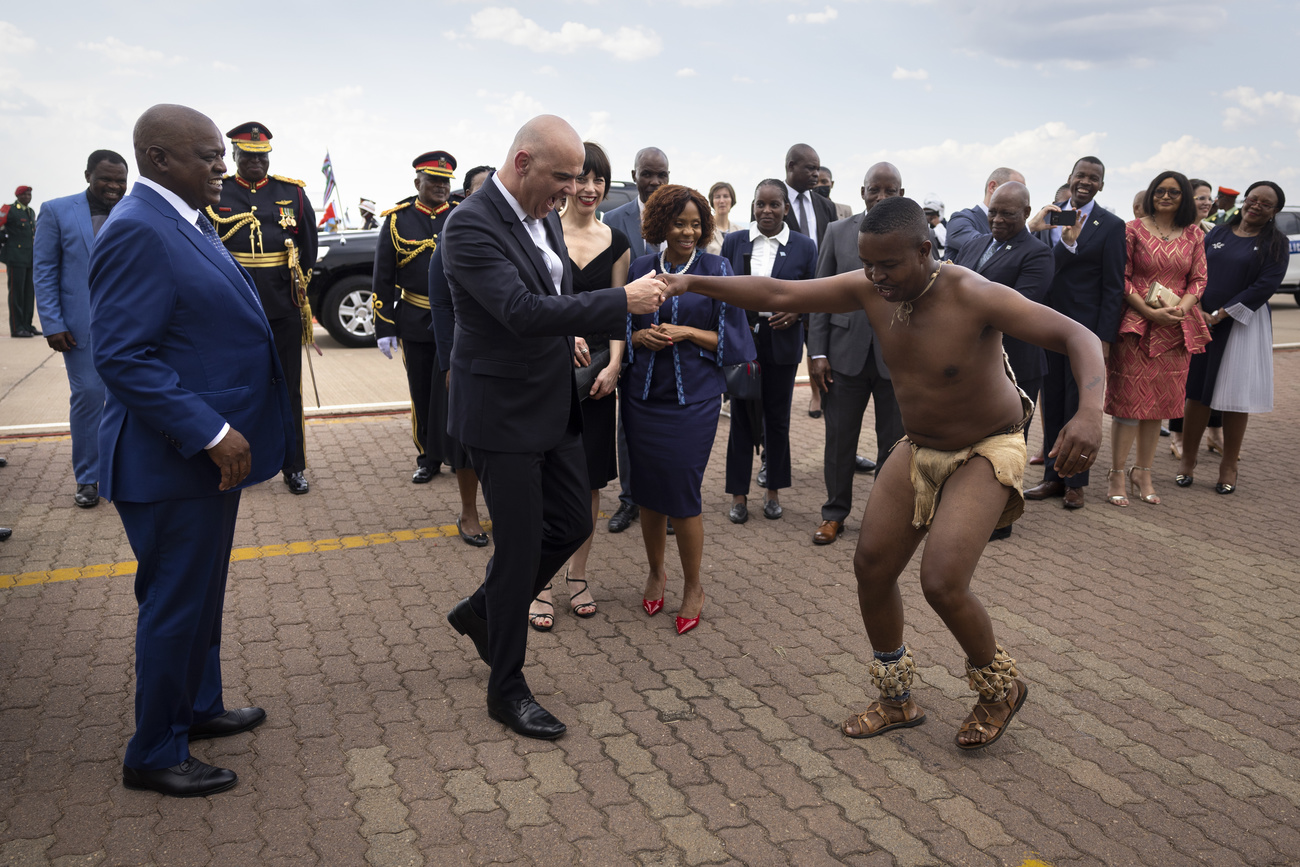
Some first steps towards this new diplomatic form of cooperation have already been taken. In mid-May, Berset presided over a meeting on hunger and civilian protection in New York as part of the Swiss chairing of the UN Security Council, at which Botswana made a strong contribution from the perspective of Southern Africa.
Like Switzerland, the African country is also home to several multilateral organisations such as the Southern African Development Community (SADC). It is also a member of the Southern African Customs Union (SACU). The European Free Trade Association (EFTA), of which Switzerland is a member, has concluded a free trade agreement with the latter.
New forms of democratic cooperation
Another track is offered by the Swiss foreign ministry’s new strategy to translate Article 54 of the constitution into a practical foreign policy. The constitutional mandate for “international democracy promotion”, which is globally unique, is currently being handled by the foreign ministry’s Peace and Human Rights Division.
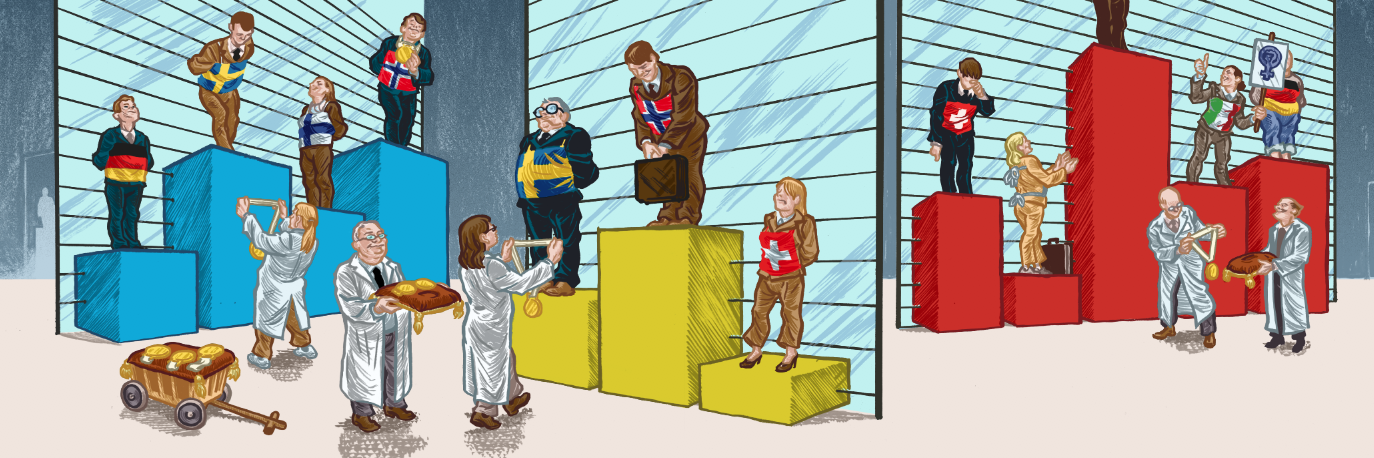
More
Fifty shades of democracy: can you measure people power?
“Botswana has a good democracy ranking and is interested in exchange,” Simon Geissbühler, the head of that division, said in an interview with SWI swissinfo.ch this spring. “This will strengthen it as an example of good democracy in Africa and inspire other countries.”
In Gaborone, there are already concrete ideas on how Switzerland could help. “We would like to set up a centre for democracy for the whole of Southern Africa here at the university,” says political professor Lotshwao.
Edited by Mark Livingston. Translated from German by Catherine Hickley/dos

In compliance with the JTI standards
More: SWI swissinfo.ch certified by the Journalism Trust Initiative

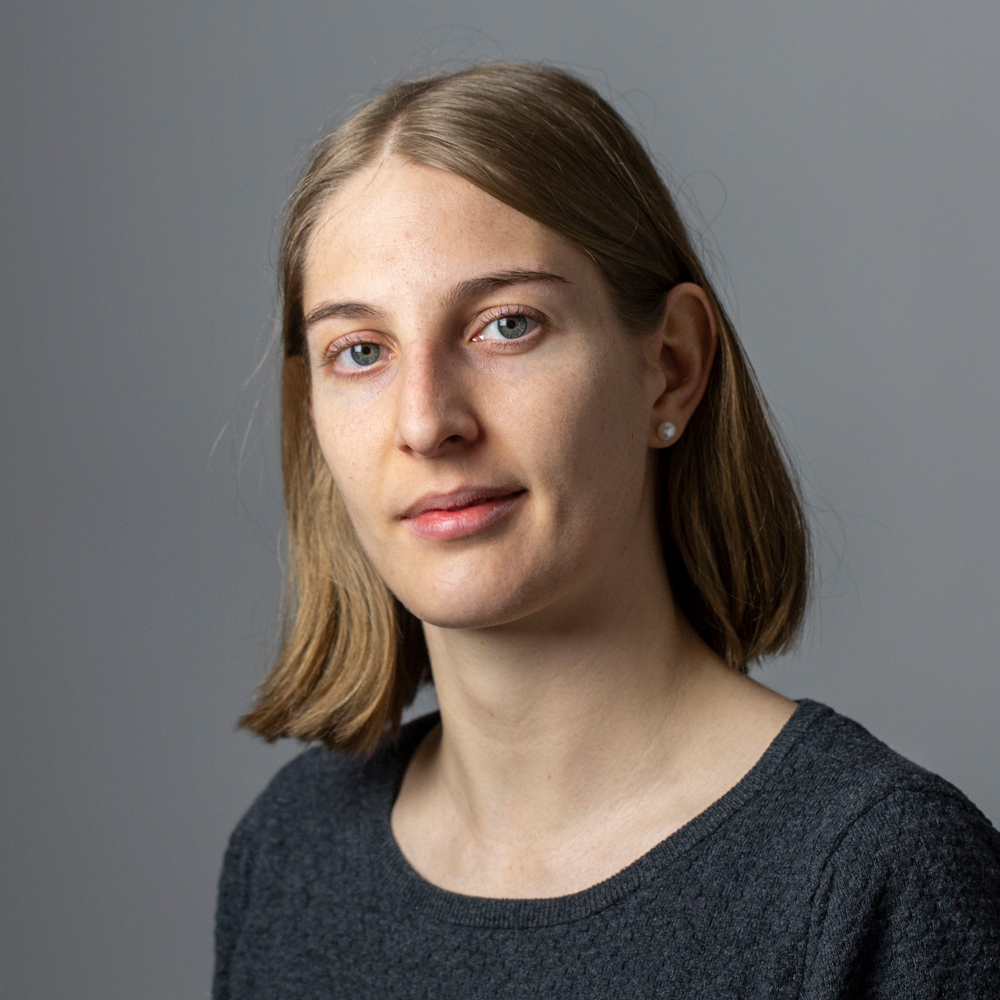








You can find an overview of ongoing debates with our journalists here . Please join us!
If you want to start a conversation about a topic raised in this article or want to report factual errors, email us at english@swissinfo.ch.